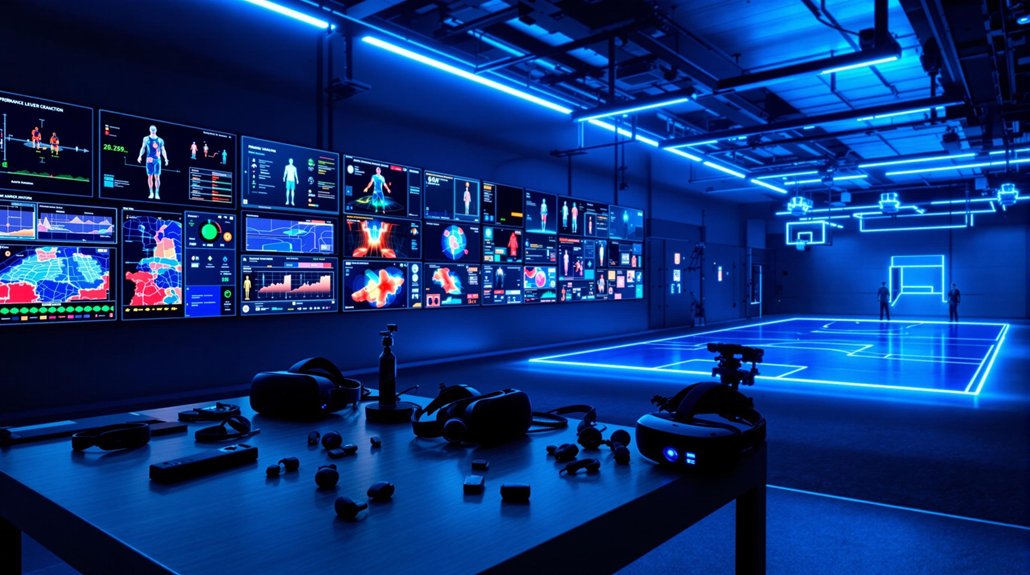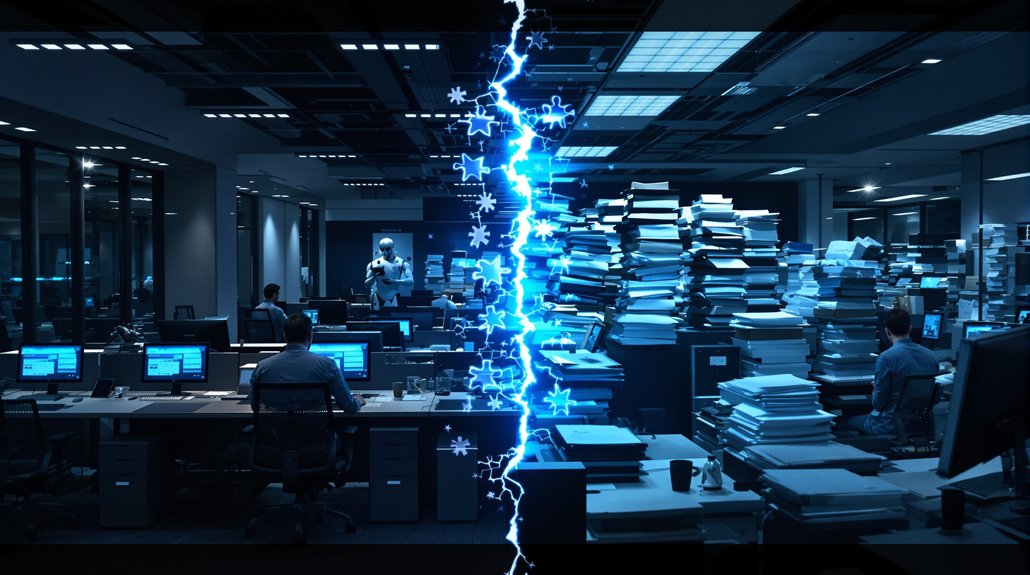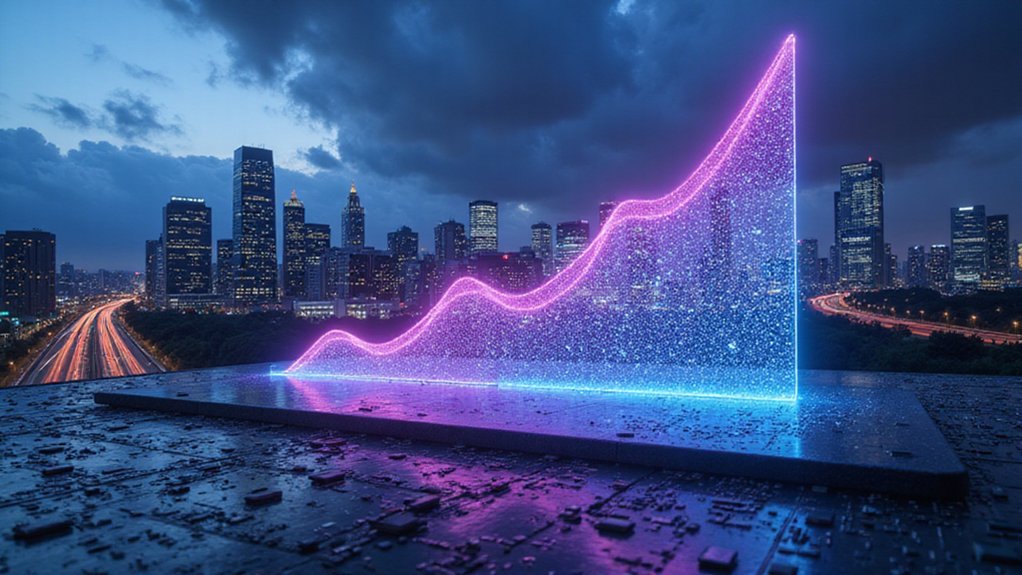AI is quietly revolutionizing sports across multiple domains. Computer vision tracks player movements while machine learning identifies gameplay patterns. Athletes benefit from wearable sensors that detect injury risks before symptoms appear. Training improves through personalized programs and VR simulations. Recruitment becomes more data-driven as AI analyzes statistics and footage. Even fans experience enhanced engagement through personalized content and stadium technologies. The full impact of this technological transformation is only beginning to emerge.
As technology advances at a rapid pace, artificial intelligence is revolutionizing the world of sports in unprecedented ways. Computer vision systems now track player movements across the field, while machine learning algorithms identify patterns in gameplay data that human eyes might miss. Coaches receive real-time insights during matches, helping them make better decisions when every second counts.
AI is transforming sports with real-time insights that capture what human observation cannot.
Behind the scenes, wearable sensors monitor athletes’ essential signs during training and competition. These devices collect data that AI algorithms analyze to detect early signs of fatigue or injury risk. This technology helps teams create personalized recovery plans for athletes, reducing downtime and extending careers. Systems like TRACAB and Hawk-Eye provide high-resolution tracking for performance analysis across various sports. Similar to healthcare AI, these systems can identify patterns that may indicate potential injuries before symptoms appear, much like how medical imaging AI helps doctors with early detection.
Training has evolved dramatically with AI’s help. Athletes now receive personalized training programs based on their specific needs and abilities. Virtual reality simulations allow players to practice scenarios without physical strain. Computer vision systems provide instant feedback on technique, helping athletes perfect their form without waiting for coach reviews.
Talent scouts use AI to find tomorrow’s stars. Instead of traveling endlessly to games, they can use machine learning systems that analyze player statistics and predict future performance. These tools scan video footage to assess technique and potential, making recruitment more efficient and effective.
Fans benefit from AI too. Chatbots answer questions instantly, while augmented reality apps create interactive stadium experiences. Machine learning personalizes content for individual fans based on their preferences, and some sports news is now written by AI systems. Facial recognition technology enhances security at sporting venues while simultaneously improving fan experiences through streamlined entry and personalized service.
Even referees get technological support. Computer vision assists officials in making difficult calls, analyzing video footage in seconds to detect rule violations. Goal-line technology and offside detection systems help reduce human error in critical moments.
Sports equipment and facilities haven’t escaped AI’s influence. Machine learning optimizes stadium operations, enhances security measures, and manages energy efficiency. AI even helps design high-performance equipment tailored to athletes’ specific needs, pushing the boundaries of human performance even further.









